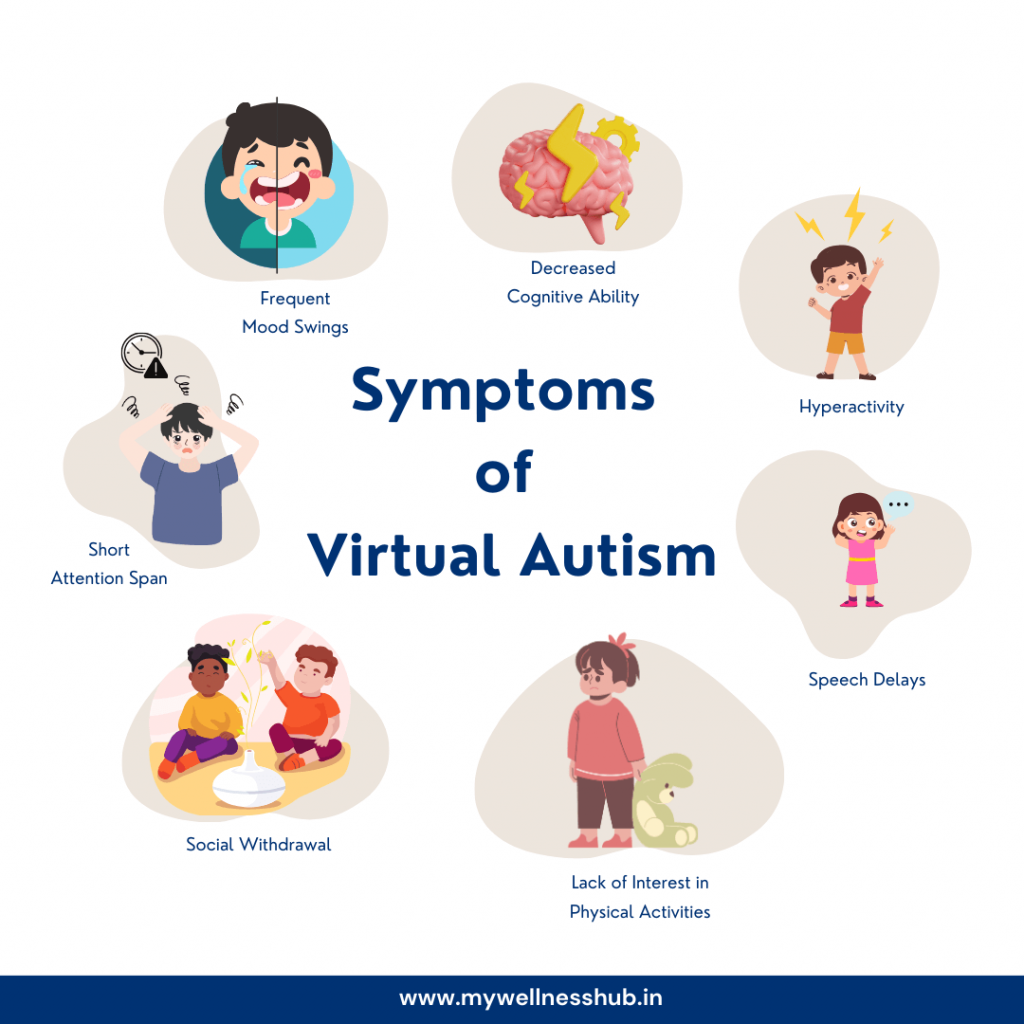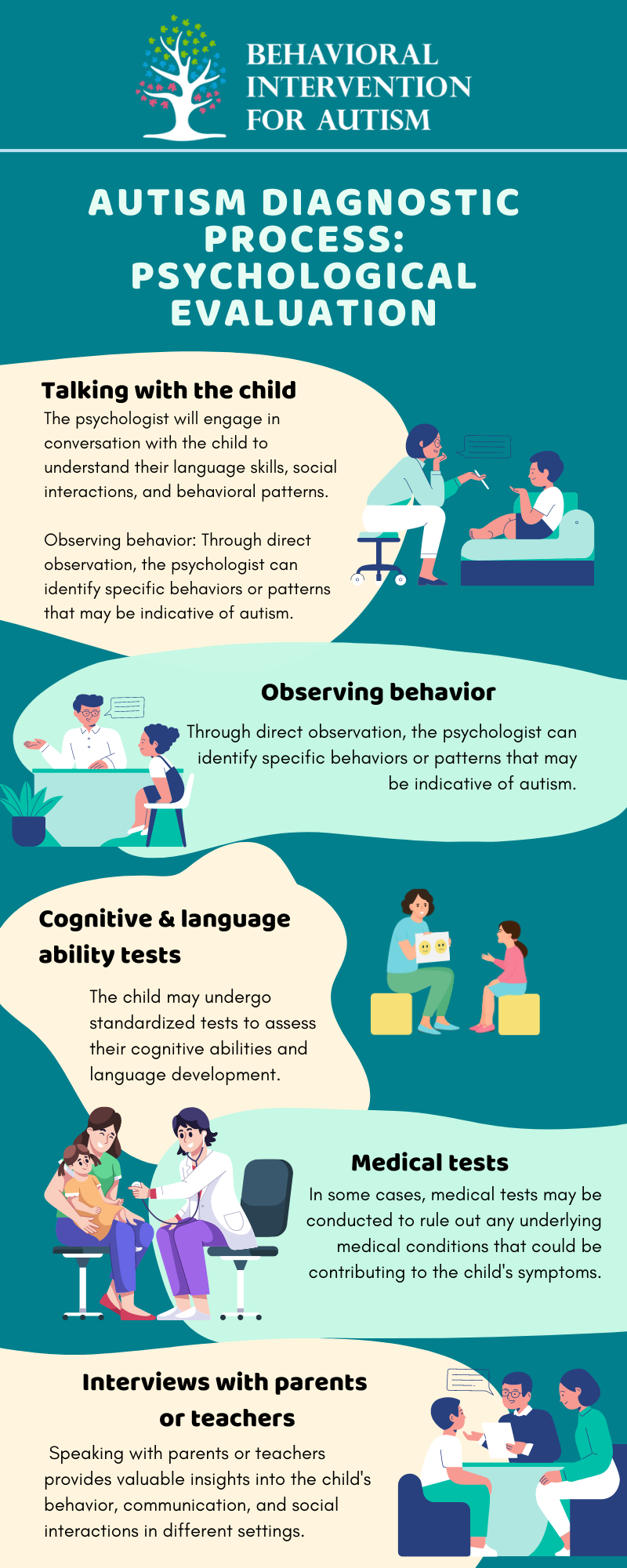Do Autism Spectrum Therapies help with developing independence in teens with ASD?
Do Autism Spectrum Therapies help with developing independence in teens with ASD?
Blog Article
Trick Symptoms And Signs to Acknowledge in People With Behavioral Autism
When you come across a person with behavioral autism, identifying essential indicators and symptoms is crucial. You may notice difficulties in social interactions and communication, in addition to a solid requirement for routines. In addition, sensory sensitivities can result in frustrating experiences. Understanding these characteristics can improve your support and treatments, yet there's more to reveal regarding exactly how these actions materialize in day-to-day scenarios. Let's explore what these indicators truly resemble.
Difficulties in Social Communications
When you communicate with a person on the autism spectrum, you might discover they have a hard time with social cues and communication. These difficulties can make social communications feel frustrating for them.
When they do involve, they may talk concerning their interests in terrific information without seeing if you're interested. Recognizing these difficulties can assist you approach interactions with compassion and perseverance, cultivating a much more comfy setting for both of you.
Problem With Verbal and Non-Verbal Interaction

Non-verbal interaction can be also more difficult. You could see a lack of eye get in touch with or minimal use of motions, which can make communications really feel awkward. Face expressions might not constantly align with the discussion, causing complication about their feelings. Recognizing these indications is essential, as it aids you better support and engage with people on the autism spectrum. By comprehending their interaction obstacles, you can cultivate a lot more purposeful connections and offer a much more helpful atmosphere.
Repeated Actions and Regimens
Interaction difficulties frequently go along with other signs of autism, such as repeated behaviors and a solid preference for regimens. You might see that people with autism commonly participate in certain, repeated activities, like hand-flapping, rocking, or duplicating phrases. These habits can provide convenience and a feeling of control in a commonly overwhelming globe.
When they comply with a structured timetable,Routines are equally crucial; numerous individuals thrive. You may find that adjustments to these regimens can lead to considerable distress. If they have a daily routine of eating breakfast at a specific time or adhering to a certain path to school, any disruption can trigger anxiousness.
Acknowledging these patterns aids you recognize their behavior and offer assistance. By suiting their requirement for regular and enabling repetitive activities, you can develop a more comfortable setting that reduces their difficulties.
Sensory Level Of Sensitivities

Typical Sensory Triggers
Sensory level of sensitivities can considerably affect every day life for individuals with autism, as particular stimulations frequently trigger overwhelming reactions. Common sensory triggers include loud noises, brilliant lights, and solid smells. You might observe that sudden audios, like alarms or alarms, trigger anxiousness or distress. Fluorescent illumination in shops can feel rough and uncomfortable. Textures can likewise play a substantial role; harsh fabrics or particular food textures may be excruciating for you. Additionally, crowded places can bewilder your detects, making it hard to relax or focus. Understanding these triggers can assist you manage your setting better. By being conscious of what influences you, you can take steps to lessen pain and boost your everyday experiences.
Behavior Responses Clarified
Recognizing your behavioral feedbacks to sensory level of sensitivities is essential, as they typically reveal how you interact with the world. You could observe that particular noises, lights, or structures bewilder you, leading to stress and anxiety or pain. When faced with these stimuli, you might take out, cover your ears, or perhaps respond boldy. These actions aren't just quirks; they're your means of managing overstimulation. You may also discover on your own looking for specific sensory experiences, like deep stress or Website quiet settings, to aid read this article ground on your own. Acknowledging these patterns assists you comprehend your demands better and can lead how you connect them to others. By recognizing your sensory level of sensitivities, you can work towards creating an atmosphere that feels a lot more manageable and comfortable for you.
Coping Techniques Summary
Acknowledging your sensory level of sensitivities is just the very first step; now it's time to check out coping strategies that can assist you take care of those experiences successfully. Start by creating a sensory toolkit tailored to your requirements. This might include noise-canceling earphones, fidget playthings, or relaxing aromas. Developing a structured routine can additionally supply predictability, decreasing anxiety around sensory overload. Take breaks in a peaceful room to regroup when you feel overloaded. Exercising mindfulness techniques like deep breathing can help ground you in the moment. In addition, connect your demands with those around you; having helpful family and friends can make a big distinction. Keep in mind, discovering what works ideal for you may require time, so be patient and open to attempting brand-new techniques.
Restricted Passions and Focus
While lots of people establish a large range of passions, those with autism typically demonstrate restricted passions and an extreme emphasis on specific subjects. You could discover that someone with autism can spend hours delving right into their favored topic, whether it's a particular sort of train, a details film, or a clinical concept. This intense emphasis isn't simply a pastime; it can become a central component of their identification and social communications.
You might locate that conversations revolve around these rate of interests, and they may struggle to involve in more comprehensive topics. By recognizing and recognizing these restricted interests, you check that can foster a helpful atmosphere where they feel valued and comprehended, permitting for more meaningful links and interactions.
Psychological Regulation Problems
Individuals with autism frequently face obstacles in psychological law, which can be influenced by their intense emphasis on specific interests. You may observe that when a person is deeply taken part in a preferred activity, they can experience solid emotions, whether exhilaration or irritation. When things do not go as prepared., this intensity in some cases makes it difficult for them to move gears or handle their sensations - Autism Therapist.

Variability in Developing Milestones
When it comes to developmental turning points, you'll observe that individuals with autism commonly show a vast variety of irregularity. You could see a youngster stand out in language abilities but battle with social communications.
It's vital to identify that each individual's journey is one-of-a-kind. Observing these patterns can aid you comprehend their staminas and needs better.
Often Asked Questions
Exactly How Is Autism Identified in Children and Adults?
To diagnose autism in youngsters and adults, experts review habits, communication skills, and social communications. They typically use standard tests, interviews, and observations to establish if a private fulfills the criteria for autism range disorder.
Exist Various Sorts Of Autism Spectrum Disorders?
Yes, there are different kinds of autism range problems, including Asperger's syndrome and pervasive developmental disorder-not otherwise specified. Each kind varies in intensity and characteristics, so understanding these differences can assist you much better support individuals with autism.
What Therapies Work for Individuals With Autism?
When thinking about efficient therapies for individuals with autism, you'll find options like Applied Actions Evaluation, speech treatment, and job-related therapy. Each method can help enhance interaction, social skills, and day-to-day functioning tailored to specific needs.
Can Individuals With Autism Lead Independent Lives?
Yes, people with autism can lead independent lives. With the best assistance, skills training, and sources, you can assist them establish self-sufficiency, take care of day-to-day jobs, and prosper in numerous atmospheres, promoting their freedom.
How Can Families Assistance Loved Ones With Autism?
You can support your loved ones with autism by developing a structured atmosphere, motivating their rate of interests, practicing patience, cultivating communication, and promoting social skills. Commemorate their accomplishments, despite just how little, and construct a helpful neighborhood.
Although numerous individuals on the autism range can use and comprehend language, they usually encounter substantial obstacles with both non-verbal and verbal interaction. Recognizing these signs is crucial, as it aids you much better assistance and engage with individuals on the autism spectrum. You could discover that people with autism commonly involve in particular, repetitive activities, like hand-flapping, shaking, or duplicating expressions.Sensory level of sensitivities can considerably influence daily life for individuals with autism, as specific stimulations usually activate frustrating reactions.When it comes to developmental milestones, you'll observe that people with autism typically show a broad variety of irregularity.
Report this page